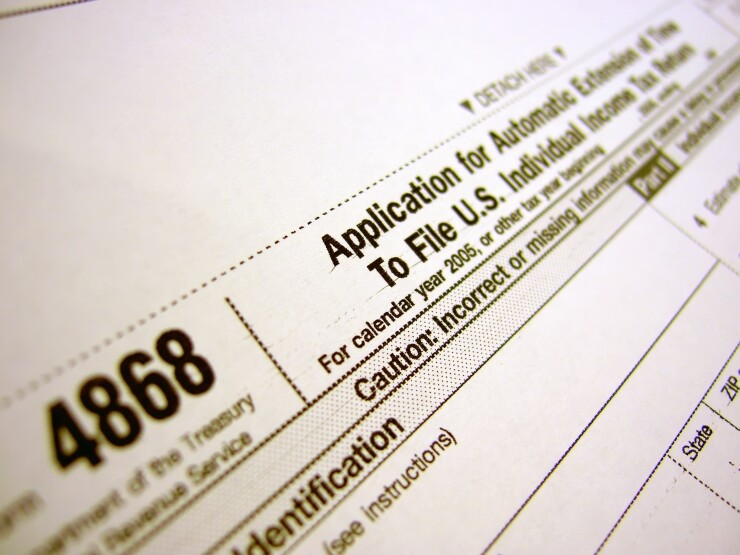Want unlimited access to top ideas and insights?
When I started my practice I tried to extend as many clients as I could. I figured this would ease tax season and spread the work out throughout the year.
I found out this is not workable—for me. Now, we do whatever we can to get a return completed so it can be filed on time. While I address many issues, there are many legitimate reasons for extending returns and these are not what I am talking about here.
My experience is the returns that were extended, no matter what our intentions, were not done until they had to get done. The reality was we couldn’t even think about the returns until early June and then we had to deal with the June 15 estimated tax forms. July and August was vacation time. At any given point in those two months we had staff on vacation, including me and my partners.

We also had people leaving early on Fridays or taking their vacation in days with Friday and/or Monday off. Not only were we always shorthanded in the summer, but Fridays were extra short of staff. No, there was no way tax returns could have been squeezed in. Of course there were special situations such as a need for the return for a loan, mortgage or college scholarship application and those got done; but without any urgency, the bulk of the returns were untouched.
We had all the information for some of the returns, but they were extended because we just could not get to work on them. However, most of the returns were missing information, and we did not follow up on receiving it because we knew we couldn’t get them worked on. And where we did follow up, the clients dilly-dallied in responding since they knew they had an extension until October.
Human nature being what it is, many business projects were pushed into the summer and those took priority—so that trumped the 1040 work. We also had some not-for-profit and employee benefit plan tax returns and audits, which were summer work. The fallacy in our thinking was that these are lower realization work, which we accepted for the summer since we were “slower.” Totally not so! Again, 1040 work was crowded out.
Parkinson’s Law is also in full bloom in the summer with tax return work. The law dictates that work expands to fill the time available for its completion. Well, a 1040 that might take three hours in early April seems to take the whole day in August, unless it is started on a Friday morning and then it is done before lunch because that staff person wants to start their weekend early.
Some states assess penalties or deny the extension if the right tax payment is not made with the extension. Filing on time eliminates these circumstances.
I further found out that extended returns seem to thwart planning for the current and following years since who wants to think about tomorrow when yesterday isn’t done yet? This shortchanges the clients because the sooner planning is done the more effective it can be.
Also, extended returns delay billings, and this hurts cash flow. Additionally, many of the returns sitting in your office can be considered work in progress inventory, and we all know what we say to our clients about that.
Preparing extensions takes time during your busiest time and in many cases it is not chargeable or fully chargeable. This unrecoverable, irretrievable and unpaid time should be reduced as much as possible—not increased. Eliminating this time can provide added hours to the productive preparation of returns that will be filed on time.
These are my opinions based on my experiences. You have your experiences, but if I might suggest, if you like filing extensions, consider some of what I wrote here. As always, if you do not agree with what I wrote, contact me and let’s discuss it.
Edward Mendlowitz, CPA, is partner at





